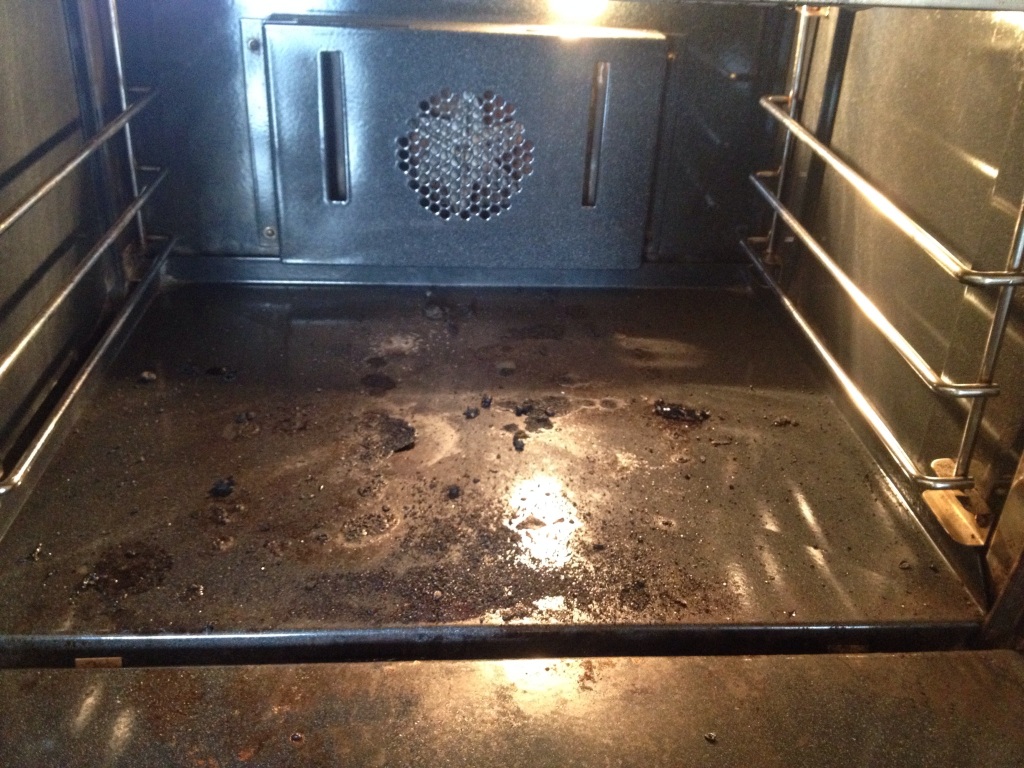Once upon a time, I was invited to the table with a group of cisgender people from large NIH-funded organizations, who were voluntarily tasked with addressing transgender inclusion for their entire respective institutions. Another trans person was also invited, but after one meeting, she never returned. It was just me. Just one white guy without even a bachelor’s degree yet, who’d been out as trans for all of five minutes (a full year) at that point – and a whole group of well-intentioned cisgender professionals, every one of whom would surely insist they were a strong transgender ally.
I spent the first year in that group gently explaining basic concepts, like why the word cisgender is a medically and scientifically necessary word to use; often repeating, “Yes, I do hear you telling me you don’t want to be called ‘cisgender’ because you prefer to just think of yourself as ‘normal,’ but it’s factually inaccurate to pretend ‘cisgender’ doesn’t exist in the English language or apply to you.” People were afraid of me even before I spoke, not because of anything I had said yet, but because they were so much more attached to their emotional comfort than doing the right thing. They were afraid of being wrong; of messing up; of not being perfect; of causing me to sound upset or angry. Some of them shut down conversations to avoid this discomfort, because this was indeed more important to them than making progress on including trans people in the HIV research we had been fully excluded from despite being one of the most impacted populations.
With “allies” like these, I was terrified for the future of our healthcare. They were deliberately excluding a minority group from medical research studies, and they didn’t understand why that was a problem, even when I kindly explained the 1994 federal law prohibiting this exclusion to them like they were five years old.
By the end of the first year, those more challenging folks decided they had other priorities and left the working group. The folks who remained had a genuine commitment to scientific integrity, human dignity, and equitable inclusion of previously excluded and historically abused minority groups. They were wonderful humans I am deeply grateful to have worked with. These remaining allies asked if we could do something meaningful, rather than just sitting around talking about the issues.
As the only transgender person at the table still, they looked to me for answers on how to craft a training module series. The goal would be for these videos to become required training for every DAIDS-funded researcher in the United States. At this point, whatever I said was gonna be taken as gospel. So I said the only thing that made sense to me:
“You need to get a budget to pay people for what I’ve been doing free this past year. There are trans people of color all over the country with PhDs, and MPHs, and MDs who know this content better than I do. You cannot ask them to sit at this table for free, and you must ask them to sit at this table before you can even consider producing a training series like this. I can help you figure out getting started, but they’re the experts on the real subject matter. You need them.”
Within the year, a handful of brilliant trans folks of color from varied regions all came together to sit at a table on the beach in Florida and develop the first of five training modules, which are now required learning for all DAIDS-funded research staff.
This journey began with an unpaid job best described as cleaning up elephant shit at the circus. It wasn’t worth inviting any other trans person to do it, because half the cis folks were not ready to hear a trans person as their equal in the first place. If they had been willing, they would only have listened to the Caitlyn Jenners or Buck Angels who would have made them feel real good about being well-meaning cis saviors with terrible integrity and character, while requiring absolutely no change or discomfort from the harmful cis folks along the way.
These are the most dangerous kind of “allies,” who only want to hear from oppressed people on their own terms, in a way that doesn’t make them uncomfortable, even when they’re hurting us. They will discard any uncomfortable feedback and look for a different trans person to tell them they’re okay. Their personal validation and self-preservation is always the priority, not our survival or well-being. They make it difficult to get anything done, even when half the team is indeed showing up for the right reasons.
This past week, I’ve had 4 encounters with people who seem to think that because I’m new on their block, I don’t know much about how to get things done. Some folks think that because they don’t like my tone, I need to be told how diplomacy works. Some folks tell me if I “really want to be helpful,” the only real way to do that is to exhaust myself explaining my traumas over and over in the gentlest possible way to educate well-meaning cis folks with enormous amounts of political and financial power, without being compensated for my labor — unless you count the fact that there is a legislative gun to my head, and you consider the possibility of not being killed to be some form of “compensation.”
Here’s the real deal: If you require my diplomacy voice in order to hear me, then I am sorry I misjudged you as a friend I could trust with the difficult truth of recognizing the life trans folks are currently enduring in Arkansas. I assumed you to be the kind of ally who would remain on the team after all the half-assed, self-assured ego-strokers abandoned ship. I can accept being wrong, and I am sorry my approach wasn’t as gentle as you would have preferred.
When I have the energy for cleaning up elephant shit at the circus again, I’ll be sure to come sit down with you, and whomever else on your team needs me to do so, in a very gentle, empathic, compassionate, polite way. I’ll reassure you you’re doing the best job you can under difficult circumstances, and remind you that difficulties are temporary setbacks, not permanent conditions. I’ll agree with you 100% that your good intentions do matter, and say that we trans folks just appreciate the fact that you even care at all, when there are so many people who actively want us dead. The fact that you clear this bar really means a lot to us, even if some trans folks are a little rough around the edges and don’t often acknowledge our gratitude for your generous allyship. I’ll meet you where you’re at, like a decent person would do. You won’t notice even a hint of anger from me. I’ll forgive you for the ways that what you didn’t know before now has harmed us, and you can just try to do better moving forward, if you feel so moved. It’s fine. Everything is fine. You’re trying.
But today, my dear well-intentioned friend, I’m afraid the circus is demanding other tasks from me:
Swinging on the trapeze between the warring factions of my own community who are heartbroken and arguing over whose approach to resistance is the most valid. (Did you pay for a seat to watch this show? I don’t think we’d be doing this particular performance without white cis folks’ judgmental gaze upon us.)
Swallowing the flaming sword of losing friends to sudden-onset alcoholism while they mourn the loss of the life they’ve built and prepare to flee the state as refugees to protect their children from state-mandated child abuse.
Juggling the glass balls of intentionally disrupting multiple cases of self-harm, alcoholism, and drug abuse among my friends; giving pep talks; leading and organizing a crochet group; planning a 500+ person event this Spring; attending committee meetings; building up volunteer teams; and providing counsel to other leaders at a loss for direction in this highly uncertain historical moment….
While riding the unicycle of trying to be a decent lover, planning my own birthday party, learning guitar, doing a 70 hour a week job for a meager paycheck, and making time to be fully in love with life….
While wearing the many, often clownish, hats of non-profit leader, Democratic Party persuader, community builder, trucker, and friend, all at once.
Walking the high-wire tight rope of moving forward with my life after having been coercively sterilized by a doctor in 2014 because I am transgender; having a profound amount of transition-related regret that my own community usually forbids me from discussing honestly – lest it be weaponized against us; – wondering whether I can even continue living in my home state or if staying will necessarily result in my being forced into a prison camp like the ones my uncle gave his life in the US Army liberating people from; and keeping my feelings all bottled up and out of sight for the sake of younger* trans folks who are so beautifully bright-eyed and hopeful that what we are currently experiencing is a unique political moment rather than a continuation of long-standing horrors they’ve not yet had to worry about happening to them, thanks to the generations of trans folks who’ve already taken the metaphorical and literal bullets to make life better for them prior to this moment.
So if you are a cis person, and I bother trying to talk to you about any of this, it means I have some modicum of faith and hope in you. I believe you are worth expending my breath to communicate with. I believe, however foolishly, that you have some ability to make this unbearable pain hurt less – and that when you realize you hold this power, you will act on it for good. If I sound angry, it’s because I’m looking for a relief valve and asking you in the gentlest way I can to help me find that relief, without compromising my sense of self-respect in the process.
And it’s not even like I’m screaming at you. When I’m angry, I literally just say, “I am angry.” If I’m telling you I’m angry, I trust your humanity enough to appreciate that what I’m going through deserves anger. What my friends are going through, and the way trans children are being abused by the state, deserves anger. If I were not angry right now, I would not be a decent human.
But if you need me to “tone it down” so you can feel more comfortable — likely about the ways you have actually participated, however unwittingly, in sustaining this circus I’m trapped performing in like a caged animal — well then, okay. Sure. I can tone it down for you. I know how to be diplomatic just fine. If diplomacy is what you require before you can hear me pleading for my life, just say so, and you’ll never hear me raise my voice again.
But will you hear the truth in my whisper?
If not, it will become audible in my silence.
♡♡♡♡♡♡♡
*Note: generational age among trans folks is measured in time since coming out as trans, not biological age. Elders have been out for usually 10 years or more, and are many times younger than an older person who just came out last year.





